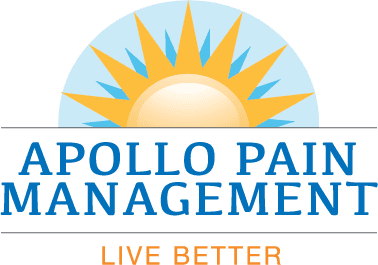A compression fracture can be disabling. When it occurs in your back, the pain can prevent you from carrying out your normal daily activities and put a stop to playing sports or engaging in other active hobbies.
If you have osteoporosis, you’re more at risk of a compression fracture in your vertebrae than someone without it. The chance of having a compression fracture rises with age. A quarter of post-menopauswal women will experience a compression fracture. About 1.5 million vertebral compression fractures occur in American adults every year.
At Apollo Pain Management in Sun City Center, Florida, Dr. R. James Warren and the team can help if you’ve experienced a compression fracture. Following is a summary of what you can expect in terms of healing.
Healing from a compression fracture with conservative treatment
If your Apollo Pain Management team deems your compression fracture treatable using conservative methods, your injury should normally heal within about two to three months. You’ll have a better than 50 percent chance of significant enough reduction in pain to be able to manage. If conservative treatment is helping you after three weeks of treatment, there’s a 95 percent chance that you’ll maintain pain relief for up to one year.
Medications to treat compression fractures
If osteoporosis is the cause of your compression fracture, your primary care physician starts you on specific medications right away to strengthen your bones, along with Vitamin D if you’re not already taking it.
Your expert team at Apollo Pain Management immediately starts treatment to relieve the pain of your compression fracture. They can prescribe stronger doses of acetaminophen than you can purchase at the drugstore. The sooner you receive significant pain relief, the sooner you’ll be able to participate in physical therapy, which increases your mobility.
Your team may prescribe a lidocaine patch that you place on the painful area to numb it. You wear the patch for 12 hours at a time. If you can tolerate muscle relaxants, you may also be prescribed a relaxant for a short time period.
Your team may decide to prescribe calcitonin, a hormone released by your thyroid gland. Studies show that it aids pain relief from recent compression fractures, but not so much for chronic pain from older ones.
Physical therapy
Your Apollo Pain Management team prescribes physical therapy as soon as your inflammation and pain have subsided with the help of pain medication. Resting for two, three, or four days is fine, but research indicates no benefit to staying in bed for a prolonged period; you’ll lose muscle that helps stabilize you and helps prevent you from falling.
Studies show that physical therapy is beneficial, helping reduce pain, increase balance, and restore quality of life. Regular back exercises can improve bone density and help prevent future fractures.
Healing from a compression fracture after surgery
If your Apollo Management team recommends kyphoplasty for a fracture caused by osteoporosis, or spine tumor ablation with radiofrequency (STAR) surgery if a tumor is causing the fracture, you’ll normally leave the hospital the day of the operation. You must have a ride home.
You’ll feel sore for a day or so, but pain medication and an ice pack do help. You should start to feel better within 48 to 72 hours. You can then return to work. Just don’t try any heavy exercise for a few weeks — not until your team gives you the all-clear. You don’t want to harm your doctor’s handiwork. Physical therapy can help you recover and teach you exercises to help prevent fractures in the future.
Our office coordinates with your primary care physician to arrange an appointment. Call or request an appointment online today with Apollo Pain Management today if back pain is reducing your quality of life.
